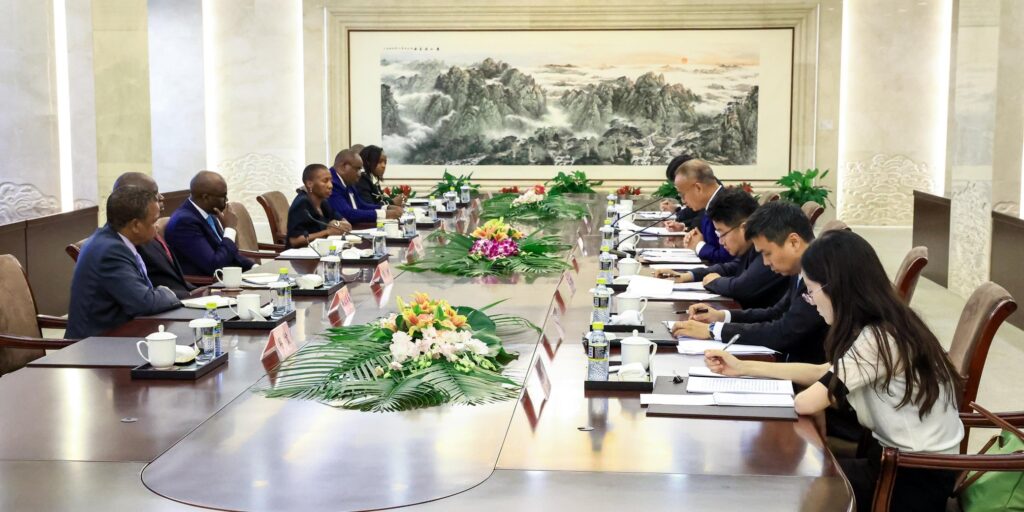ADF STAFF
China has built and supported African political party training schools since the 1960s. But in recent years, it has shifted its approach on the continent to directly training party and government officials.
“We should explore the building of a new type of party-to-party relations,” Chinese leader Xi Jinping has said.
The Chinese Communist Party (CCP) uses its Central Party School to train the top leaders of its ruling one-party system of government.
In Africa, China is building and using political party schools to export an authoritarian model and ideology on the continent, according to Paul Nantulya, a researcher at the Africa Center for Strategic Studies.
“A ubiquitous Chinese government talking point is the principle of non-interference in other countries,” Nantulya wrote in a July 29 report. “This includes issues of governance where China has long claimed that it does not export its model or encourage foreign nations to emulate its practices.
“Yet, this is rapidly changing in China’s engagements in Africa.”
The CCP spent $40 million in 2022 to build the Mwalimu Julius Nyerere Leadership School in Tanzania, which was the first in Africa to be modeled on China’s Central Party School.
The Nyerere School trains ruling party members from the Former Liberation Movements of Southern Africa coalition: Angola, Mozambique, Namibia, South Africa, Tanzania and Zimbabwe.
In 2023, the CCP renovated the Herbert Chitepo School of Ideology in Zimbabwe, the political training school of the ruling Zimbabwe African National Union-Patriotic Front.
The latest African political party to benefit from Chinese soft power is Kenya’s United Democratic Alliance, which sent officials to Beijing in May and reached an agreement with the CCP to build a leadership school in Nairobi.
Building more schools could be on the horizon.
“China’s rekindled interest in African party schools is also something of a marketing endeavor,” Nantulya wrote. “After the Nyerere and Chitepo schools opened, many approached the CCP to build their schools and enhance their party building, including Burundi, the Republic of the Congo, Equatorial Guinea, Morocco and Uganda.”
Lina Benabdallah, an associate professor in the politics and international affairs department at Wake Forest University in the United States, said China’s goal is to develop leaders who subscribe to the CCP’s ideology.
“These leadership schools also create an opportunity for the Chinese governance model to become more influential abroad by helping develop curricula, train staff and so on,” she told the South China Morning Post for an August article.
Nantulya warns that China’s party and governance training has the potential to entrench single, dominant party models in Africa. But he also sees a continent full of people who reject authoritarianism.
“Despite its economic growth, China’s political model has not been something to which many African citizens aspire,” he wrote. “Nearly 80% reject one-party rule.”

